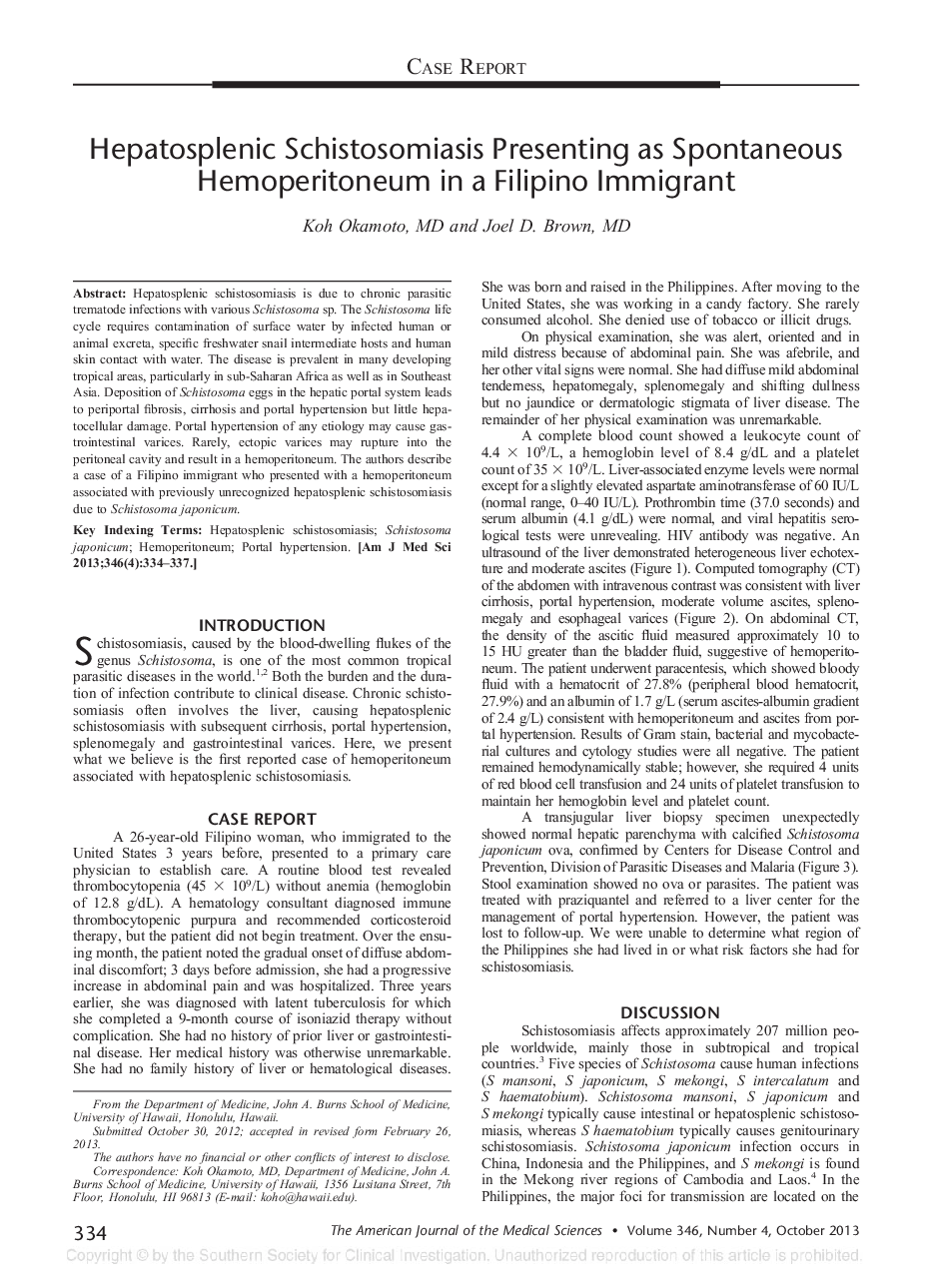| Article ID | Journal | Published Year | Pages | File Type |
|---|---|---|---|---|
| 2863614 | The American Journal of the Medical Sciences | 2013 | 4 Pages |
Abstract
Hepatosplenic schistosomiasis is due to chronic parasitic trematode infections with various Schistosoma sp. The Schistosoma life cycle requires contamination of surface water by infected human or animal excreta, specific freshwater snail intermediate hosts and human skin contact with water. The disease is prevalent in many developing tropical areas, particularly in sub-Saharan Africa as well as in Southeast Asia. Deposition of Schistosoma eggs in the hepatic portal system leads to periportal fibrosis, cirrhosis and portal hypertension but little hepatocellular damage. Portal hypertension of any etiology may cause gastrointestinal varices. Rarely, ectopic varices may rupture into the peritoneal cavity and result in a hemoperitoneum. The authors describe a case of a Filipino immigrant who presented with a hemoperitoneum associated with previously unrecognized hepatosplenic schistosomiasis due to Schistosoma japonicum.
Related Topics
Health Sciences
Medicine and Dentistry
Cardiology and Cardiovascular Medicine
Authors
Koh MD, Joel D. MD,
